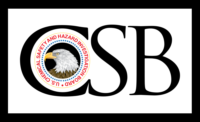 Banned in baby bottles and removed from a number of products, Bisphenol A (BPA) is still found in the thermal paper used for sales receipts – which could be putting the health of pregnant cashiers’ unborn babies at risk, according to a recent study.
Banned in baby bottles and removed from a number of products, Bisphenol A (BPA) is still found in the thermal paper used for sales receipts – which could be putting the health of pregnant cashiers’ unborn babies at risk, according to a recent study.
A report released earlier this year by the French Agency for Food, Environmental and Occupational Health & Safety (ANSES) joins a growing body of evidence that BPA – a man-made, carbon-based synthetic compound – poses health hazards for fetuses, infants and young children.
BPA has been used in industry for half a century and is found in consumer goods like water bottles, sports equipment and CDs and in industrial components, like the lining in water pipes.
It has hit the headlines in recent years over its use in the manufacture of polycarbonate plastic baby bottles. The discovery of its toxicity to infants led to the sale of such bottles being banned by the U.S., Canada and the European Union.
BPA is still a component in the thermal paper used in many sales receipts – which exposes approximately 186,000 supermarket workers to it in France alone. That country’s National Institute for Research and Safety (INRS) is planning an epidemiological study of a population of checkout workers.
The authors of the French study identified four types of harm to the unborn child, affecting the mammary gland (increased cancer risk), brain (learning difficulties), the female reproductive system (ovarian cysts and menstrual cycle disruption) and metabolism (obesity, cholesterol).
According to the report, safety gloves would not offer significant protection for workers, since BPA can penetrate both textile and plastic gloves. The possibility of replacing BPA with bisphenol S would not eliminate health risks, since bisphenol S is believed to disrupt the hormone system.


